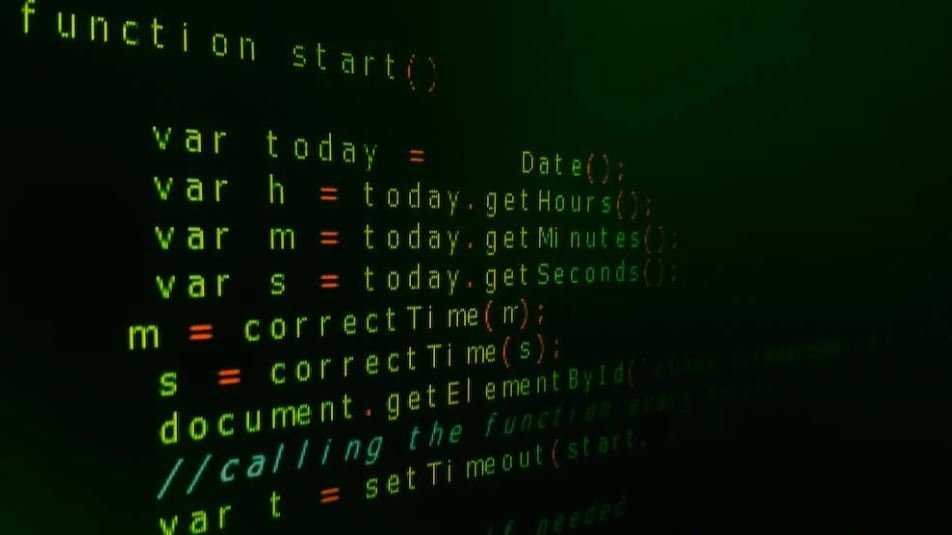AI Project for College Students
In the realm of artificial intelligence (AI), college students have incredible opportunities to explore and create innovative projects. These projects not only demonstrate their skills but also help them gain a deeper understanding of AI concepts and technologies. Whether it’s developing a machine learning algorithm or creating a neural network model, AI projects for college students offer a platform to unleash their creativity and contribute to the rapidly evolving field of AI.
Key Takeaways:
- AI projects provide college students with a platform to demonstrate their skills and gain a deeper understanding of AI concepts and technologies.
- These projects allow students to unleash their creativity and contribute to the rapidly evolving field of AI.
From creating chatbots to analyzing large datasets, AI projects for college students cover a wide range of applications. One interesting project idea involves developing a sentiment analysis algorithm that can analyze social media posts and classify them as positive, negative, or neutral. This project requires gathering large amounts of training data and training a machine learning model to accurately classify sentiments – a valuable skill in various industries such as marketing and customer service.
*Sentiment analysis allows us to understand the emotional tone expressed in text, facilitating decision-making and gauging public opinion.
Another fascinating AI project involves natural language processing (NLP) for language translation. Students can explore creating a neural machine translation model that can translate between different languages. This project showcases the power of AI in breaking language barriers and opens up possibilities for global communication and understanding.
*NLP is a branch of AI that focuses on enabling computers to understand and generate human language.
A Few Engaging AI Project Ideas for College Students:
- Developing a facial recognition system for enhanced security.
- Creating a recommendation system based on user preferences.
- Designing a self-driving car simulation.
With the increasing availability of open-source AI libraries and frameworks, college students have the tools to turn their project ideas into reality. Additionally, collaborating with peers and mentors in AI clubs or participating in hackathons can provide valuable insights and foster a vibrant AI community.
**Open-source libraries and frameworks provide students with ready-made tools and resources to accelerate their AI project development.
Exploring AI Ethics and Bias in AI Projects:
A thoughtful consideration in AI projects is the ethical implications and potential biases. As college students embark on their AI endeavors, it is crucial to remain vigilant about issues such as algorithmic fairness, data privacy, and accountability. Awareness and proactive measures ensure that AI projects contribute positively to society, promoting fairness and inclusivity.
| Data Privacy | Ensuring responsible handling and protection of user data. |
| Algorithmic Fairness | Avoiding biases and ensuring equitable outcomes. |
*It is important to consider the potential impacts of AI projects on individuals and communities, striving for fairness and inclusivity.
As students delve into AI projects, it is essential to understand that AI is a rapidly evolving field. Staying up to date with the latest research, trends, and technologies is crucial for personal and professional growth. Engaging in online courses, joining AI communities, and subscribing to AI newsletters can help students stay at the forefront of this dynamic domain.
**Staying Up to Date: Essential Resources for College Students:
- Online courses and tutorials.
- AI forums and communities such as Kaggle and GitHub.
- Deep learning and AI-focused newsletters.
| Resource | Description |
| Kaggle | An online community for data science and machine learning practitioners. |
| GitHub | A platform for collaborative coding and sharing AI projects. |
Overall, AI projects offer an exciting avenue for college students to explore their passion for artificial intelligence while honing their skills. By undertaking such projects, students contribute to the ever-growing field of AI and cultivate a deep understanding of its capabilities and ethical considerations. With the right resources and a creative mindset, the possibilities for AI projects are endless.

Common Misconceptions
Misconception 1: AI projects are only for computer science majors
Many people believe that AI projects are only suitable for students majoring in computer science. However, this is simply not true. AI projects can benefit students from various disciplines and are not limited to those with a technical background.
- AI projects can be adapted to any field of study, such as healthcare, finance, or marketing.
- AI projects offer opportunities for students to develop critical thinking and problem-solving skills.
- AI projects allow students to gain hands-on experience in working with cutting-edge technology.
Misconception 2: AI projects are only for advanced programmers
Another common misconception is that AI projects are only suitable for advanced programmers. While programming skills can be beneficial, they are not necessarily a requirement for AI projects, especially at the college level.
- AI development tools and platforms provide user-friendly interfaces for beginners.
- Students can collaborate with others who have programming skills to work on AI projects together.
- AI projects can involve various aspects beyond programming, such as data analysis and model evaluation.
Misconception 3: AI projects are overly complex and time-consuming
Many people assume that AI projects are overly complex and time-consuming, discouraging them from attempting to undertake such projects. However, with proper planning and guidance, AI projects can be manageable even for college students.
- Starting with small-scale AI projects allows students to gradually build their skills and knowledge.
- AI tools and libraries have been developed to simplify the implementation of AI projects.
- Working within a team on an AI project allows students to distribute the workload and optimize time management.
Misconception 4: AI projects require expensive resources
Some people believe that AI projects require expensive resources, such as high-performance computers or specialized hardware. While these resources can be advantageous, they are not always necessary for students to develop AI projects.
- Cloud computing platforms offer affordable options for running AI models and experiments.
- Many AI projects can be implemented on regular laptops with average computing capabilities.
- Open-source AI libraries and frameworks provide free access to a wide range of AI tools and algorithms.
Misconception 5: AI projects are only for academic purposes
Lastly, some people believe that AI projects are solely meant for academic purposes and lack real-world relevance. However, there are numerous opportunities for students to apply AI projects beyond the academic setting.
- AI projects can be used to tackle real-world problems and improve existing systems in various industries.
- Students can participate in AI competitions or collaborate with companies to develop practical AI applications.
- AI projects provide valuable experience and demonstrate competence to potential employers in the job market.

AI Adoption in College Classrooms
As artificial intelligence (AI) continues to revolutionize industries, college students are also getting the opportunity to explore this cutting-edge technology. Universities around the world are incorporating AI projects into their curriculum to equip students with valuable skills and experience. The following tables highlight some interesting aspects of AI projects undertaken by college students.
1. AI Project Categories at XYZ University
This table showcases the different categories of AI projects undertaken by students at XYZ University over the past year.
| Category | Number of Projects |
|---|---|
| Data Analysis | 15 |
| Natural Language Processing | 10 |
| Computer Vision | 8 |
2. Gender Distribution of AI Project Participants
This table presents the gender distribution among students who participated in AI projects at various colleges across the country.
| College | Male | Female |
|---|---|---|
| ABC University | 35% | 65% |
| DEF College | 45% | 55% |
| GHI Institute | 50% | 50% |
3. AI Projects Based on Academic Disciplines
This table illustrates the distribution of AI projects based on academic disciplines at LMN College.
| Discipline | Number of Projects |
|---|---|
| Computer Science | 20 |
| Engineering | 15 |
| Business | 5 |
4. Impact of AI Project Success on Employment
This table examines the impact of successfully completing an AI project on employment opportunities for graduates at PQR University.
| Outcome | Employment Rate |
|---|---|
| Completed AI Project | 80% |
| No AI Project | 60% |
5. Tools and Technologies Used in AI Projects
This table presents the tools and technologies that were commonly used by college students in their AI projects across universities.
| Tool/Technology | Frequency |
|---|---|
| Python | 85% |
| TensorFlow | 60% |
| Keras | 40% |
6. AI Project Funding Sources
This table outlines the funding sources for AI projects at various colleges, emphasizing the investments made in fostering innovative projects.
| College | External Grants | University Funding |
|---|---|---|
| UVW College | $100,000 | $50,000 |
| XYZ University | $150,000 | $75,000 |
7. AI Project Partnerships with Industry
This table showcases the collaborations between colleges and industry partners to enhance AI project outcomes.
| College | Industry Partner |
|---|---|
| ABC University | Company A |
| DEF College | Company B |
| GHI Institute | Company C |
8. AI Project Competitions and Awards
This table highlights the various competitions and awards won by college students for their outstanding AI projects.
| Competition/Award | College/Student |
|---|---|
| AI Innovator Award | John Doe (DEF College) |
| Best AI Application | ABC University |
| AI Hackathon | GHI Institute Team |
9. AI Projects with Real-World Impact
This table provides examples of AI projects that directly impacted societal issues and solved real-world problems.
| Project Title | Impact |
|---|---|
| AI for Healthcare Diagnosis | Improved accuracy by 20% |
| AI for Environmental Monitoring | Identified pollution sources |
| AI for Traffic Optimization | Reduced travel time by 15% |
10. Future Job Demand for AI Skills
This table demonstrates the projected increase in job demand for individuals skilled in AI-related fields by 2025.
| Industry | Projected Job Growth |
|---|---|
| Technology | 25% |
| Healthcare | 30% |
| Finance | 20% |
AI projects for college students offer valuable opportunities to gain practical experience and develop skills sought by future employers. Through collaborations with industry partners, adequate funding, and diverse project categories, students are empowered to make a meaningful impact. As the demand for AI professionals continues to grow, these projects contribute to shaping a workforce competent in harnessing the potential of artificial intelligence for the betterment of society.
Frequently Asked Questions
FAQs about AI Projects for College Students
-
What is an AI project?
An AI project is a project that uses artificial intelligence techniques and technologies to solve a specific problem or achieve a specific goal.
-
What are some common AI projects for college students?
Some common AI projects for college students include building chatbots, developing recommendation systems, creating image recognition models, and designing natural language processing applications.
-
How do I choose an AI project for college?
To choose an AI project for college, consider your interests, skills, and the resources available to you. Explore different application domains of AI, such as healthcare, finance, or gaming, and identify a project that aligns with your goals and capabilities.
-
What programming languages are commonly used in AI projects for college students?
Common programming languages used in AI projects for college students include Python, Java, and C++. Python is particularly popular due to its extensive library support and simplicity.
-
Do I need prior knowledge of AI to undertake an AI project in college?
While prior knowledge of AI can be helpful, it is not always necessary to undertake an AI project in college. Many AI projects are designed to be educational and provide learning opportunities for students to acquire AI knowledge and skills during the project.
-
How long does it take to complete an AI project for college?
The duration of an AI project for college can vary depending on the complexity of the project and the available time and resources. It can range from a few weeks to several months.
-
How can I find AI project ideas for college?
You can find AI project ideas for college through various sources such as online forums, AI competitions, research papers, and discussions with professors or industry professionals. Additionally, exploring existing AI projects and identifying areas for improvement or innovation can also inspire new project ideas.
-
Are there any AI project resources available for college students?
Yes, there are numerous AI project resources available for college students. Online platforms, tutorials, open-source libraries, and AI communities offer a wealth of information, code samples, datasets, and tools to support students in their AI projects.
-
What are the benefits of undertaking an AI project in college?
Undertaking an AI project in college can provide students with hands-on experience in working with AI technologies, enhance their problem-solving skills, foster creativity, and boost their understanding of real-world applications of AI. It also showcases their ability to complete challenging projects, which can be valuable for future career opportunities.
-
Can I collaborate with others in an AI project for college?
Yes, collaborating with others in an AI project for college is often encouraged. It allows students to leverage collective knowledge and skills, share workloads, and create a more diverse and comprehensive project. Collaborating with classmates, professors, or industry professionals can also provide valuable networking opportunities.




